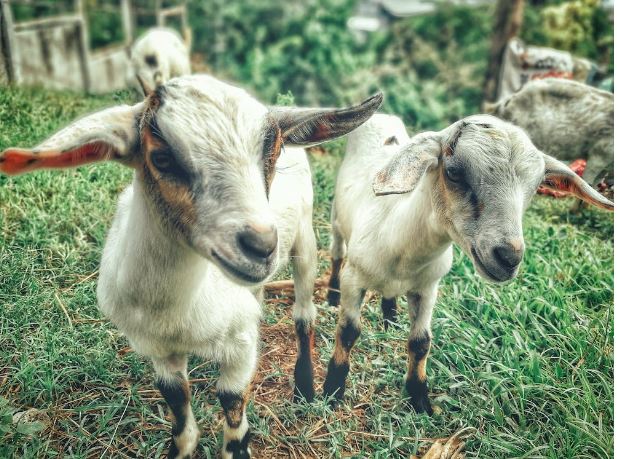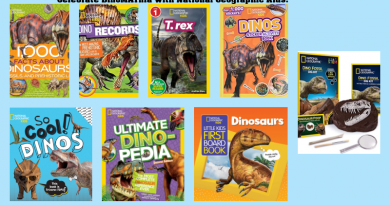Feeding Your Livestock: Tips And Tricks For Choosing The Right Goat Feed
Feeding livestock animals is a crucial aspect of animal husbandry, and goats are no exception. Proper nutrition is essential to ensure optimal health, productivity, and longevity of these hardy creatures. As such, farmers and goat owners must select the right feed that meets their goats’ dietary requirements to keep them healthy and productive.
Understanding the nutritional needs of goats is critical when selecting the right feed for them. Goats are ruminant animals that require a balanced diet consisting of carbohydrates, proteins, fats, vitamins, minerals, and water. Failure to provide adequate nutrition can lead to poor growth rates, low milk production in dairy goats or reduced meat output in meat breeds. In this article we will discuss tips and tricks for choosing the right goat feed by examining goat dietary requirements, identifying nutritional needs specific to each breed or age group of goats , types of goat feed available on the market today as well as various supplements that can be used alongside or instead of feeds depending on your herd’s unique requirements..
Understanding Goat Dietary Requirements
An understanding of the dietary requirements of goats is essential in ensuring their optimal health and productivity. Goats are ruminants, which means that they have a four-chambered stomach that allows them to digest fibrous plant materials efficiently. As such, their diet should consist mainly of high-quality hay or pasture grasses. However, goat feeding habits vary depending on factors like age, sex, breed, and reproductive status. For instance, lactating does need more protein and energy than dry does or non-breeding males. Additionally, young goats need higher levels of calcium and phosphorus for proper bone development.
Despite being adaptable animals with a reputation for eating almost anything, goats are prone to common dietary deficiencies if not fed properly. For instance, copper deficiency is a prevalent problem in many areas because most soils lack adequate amounts of this mineral. Symptoms include hair loss around the eyes and tailhead area as well as anemia and reduced growth rates. Similarly, selenium deficiency can lead to weak immune systems and muscle weakness or stiff joints. Therefore it’s essential to work with a veterinarian or animal nutritionist when formulating your goat feed ration to ensure that all nutritional needs are met adequately.
Identifying Nutritional Needs
This section focuses on identifying the nutritional requirements of goats, which is crucial for their proper growth and development. Feed composition plays a vital role in providing the necessary nutrients that goats require, such as carbohydrates, proteins, minerals, and vitamins. The quality of feed should be high to ensure that it meets the nutritional requirements of the animals. Goats also have specific feeding preferences and may reject certain types of feed if they do not like them.
The feeding schedule is another crucial factor to consider when identifying goat nutritional needs. It is recommended that goats are fed at least twice a day, preferably in equal portions. This allows them to consume enough food throughout the day to meet their daily dietary requirements. Additionally, water availability must be continuous since goats drink a lot of water per day due to their high metabolic rate. Overall, understanding these key nutritional needs will help you choose the right feed for your livestock and maintain their health effectively.
Types of Goat Feed and Supplements
Understanding the various types of feed and supplements available for goats is essential as it enables livestock owners to provide adequate nutrition for their animals. There are several goat feed options, including hay, grains, and pasture grasses. Hay is a popular choice among farmers as it contains all the necessary nutrients that goats need. It is also convenient to store and can be fed year-round. Grains, on the other hand, are high in energy and protein but should only be given as a supplement to hay or pasture grasses. Pasture grasses offer a variety of nutrients that are beneficial to goats but require enough land space.
In addition to basic feeds, nutritional supplements can help ensure that goats receive all the necessary vitamins and minerals they need. Mineral blocks or loose minerals should be offered free-choice all year round since they contain essential elements such as copper, zinc, selenium, and iodine. Probiotics can also help improve digestion by maintaining healthy gut bacteria levels while electrolyte solutions can help replenish lost fluids during hot weather conditions or illnesses. However, it’s important not to over-supplement with any of these products since too much of certain nutrients can cause toxicity in goats.
Choosing the Best Feed for Your Goats
Selecting the optimal nutrition for goats can be a challenging task, as it involves considering various factors such as the age, weight, and purpose of the animal. One of the first things to consider when choosing feed for your goats is their feeding schedules. Goats require a consistent feeding schedule that takes into account their specific needs. For instance, young goats need more frequent feedings than adult ones, while pregnant or lactating does require additional nutrients and higher quality feed to support their milk production. Additionally, it’s essential to ensure that your goats have access to clean water at all times.
Another important factor in selecting goat feed is forage options. While commercial feeds can provide essential nutrients, incorporating high-quality forage into their diet can help maintain overall health and reduce feed costs. Good quality hay should make up the bulk of a goat’s diet since it provides fiber and keeps their digestive tract healthy. Other sources of forage include pasture grasses, shrubs or trees with leaves (browse), and grain crops like oats or barley. Choosing high-quality forages will guarantee that your livestock gets proper nutrition without compromising on taste or palatability.
Frequently Asked Questions
How often should I feed my goats?
The feeding frequency and nutritional requirements of goats depend on several factors, such as age, weight, and level of activity. As a general rule, adult goats should be fed twice a day with hay or pasture grasses to meet their energy and fiber needs. They also require access to clean water at all times. For pregnant or lactating goats, an additional feeding may be necessary to support the increased demand for nutrients. It is essential to provide a balanced diet that includes protein, carbohydrates, vitamins, and minerals in appropriate amounts based on the specific needs of each goat. Overfeeding can lead to obesity and health problems, while underfeeding can result in malnutrition and decreased productivity. Therefore it is crucial to monitor the body condition score of the goats regularly and adjust the feeding regime accordingly.
Can I feed my goats table scraps or human food?
Goat feed alternatives are a common consideration for goat owners who want to supplement or replace their regular feed. However, feeding goats table scraps or human food is not recommended due to the potential dangers associated with this practice. For instance, goats are sensitive to certain foods that can cause digestive problems such as bloating and diarrhea. Additionally, some human foods can be toxic to goats such as chocolate, avocadoes, and onions. A case study conducted by the University of California found that a group of goats fed with household leftovers experienced significant weight loss and poor growth rates compared to those on a balanced diet. Therefore, it is important to stick with commercially produced feeds specifically designed for goats rather than experimenting with human food which may result in unintended health consequences.
How much water do goats need each day?
Goat water intake is essential for their health and well-being. A goat’s daily water requirement varies depending on several factors, such as the animal’s age, weight, and environmental temperature. However, on average, a healthy adult goat should consume approximately one to two gallons of clean water per day. It is crucial to provide fresh and clean drinking water at all times to prevent dehydration, which can lead to various health issues such as decreased milk production and weight loss. Additionally, goats prefer cool and clean water sources that are easily accessible for them to drink from. Therefore, it is necessary to ensure that the water supply system is functioning correctly and that the drinking containers are cleaned regularly to maintain optimal hygiene levels.
Can I feed my goats hay that has been rained on?
Using wet hay for feeding goats is not recommended due to the potential loss of nutritional value. Rain soaked hay may have a decrease in dry matter content, which can negatively affect digestibility and nutrient availability. Additionally, moisture can promote mold growth, leading to health problems for your goats. It is important to ensure that your goat’s feed has high-quality nutrients for their optimal growth and health. Therefore, it is advisable to store hay properly or purchase additional bales if necessary rather than using wet hay as a substitute.
What are some common health problems that can result from improper goat feeding?
Goat feed nutrition plays a crucial role in maintaining the overall health and well-being of goats. Improper feeding schedules and routines can lead to a range of health problems, such as digestive issues, weight loss or gain, and reproductive disorders. Goats require a balanced diet that consists of roughage, protein, vitamins, and minerals. Feeding too much or too little of any of these nutrients can cause adverse effects on their growth and development. Therefore, it is essential to create a feeding plan that meets the nutritional requirements of goats based on their age, breed, gender, and individual needs. It is also advisable to consult with an experienced veterinarian or animal nutritionist for guidance on selecting the appropriate feed type and quantity for your goats’ optimal health.
Conclusion
In conclusion, feeding your goats is a crucial aspect of their overall health and well-being. By understanding their dietary requirements, identifying their nutritional needs, and choosing the best feed and supplements for them, you can ensure that your goats are healthy and productive. Whether you are raising goats for milk, meat, or as pets, it is essential to provide them with a balanced diet that meets their specific needs.
As goat owners, we have the responsibility to care for these animals and provide them with everything they need to thrive. Proper nutrition is critical in this regard. It not only impacts their physical health but also affects their behavior and productivity levels. Therefore, it is vital to take the time to learn about different types of goat feed and supplements available on the market today so that you can make informed decisions about what to feed your flock. By doing so, you will be able to create an environment where your goats can flourish and lead happy lives.




